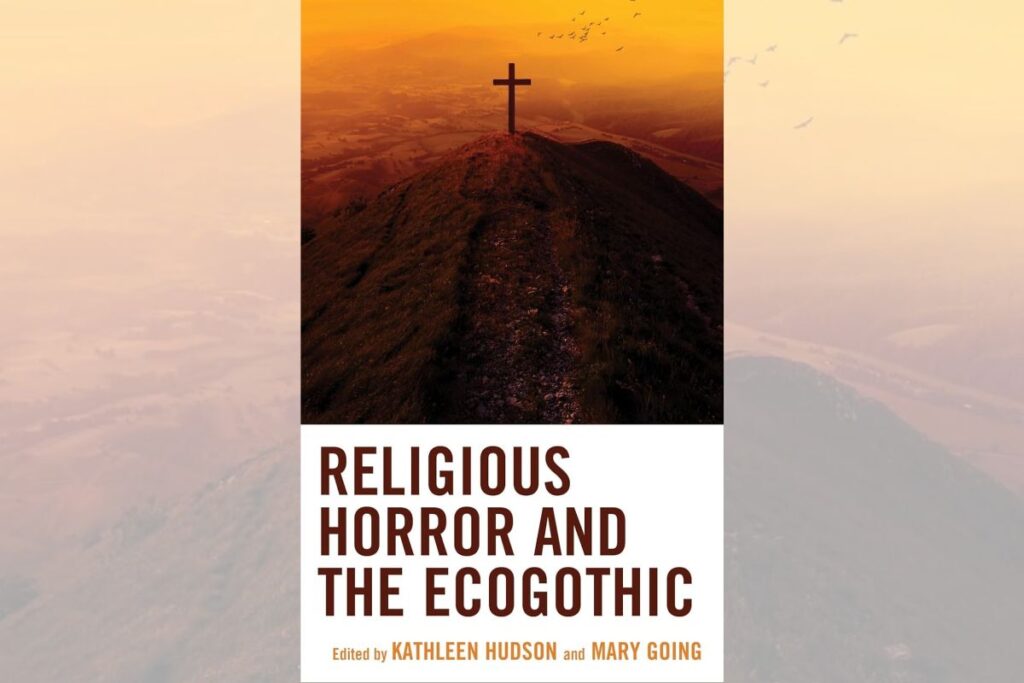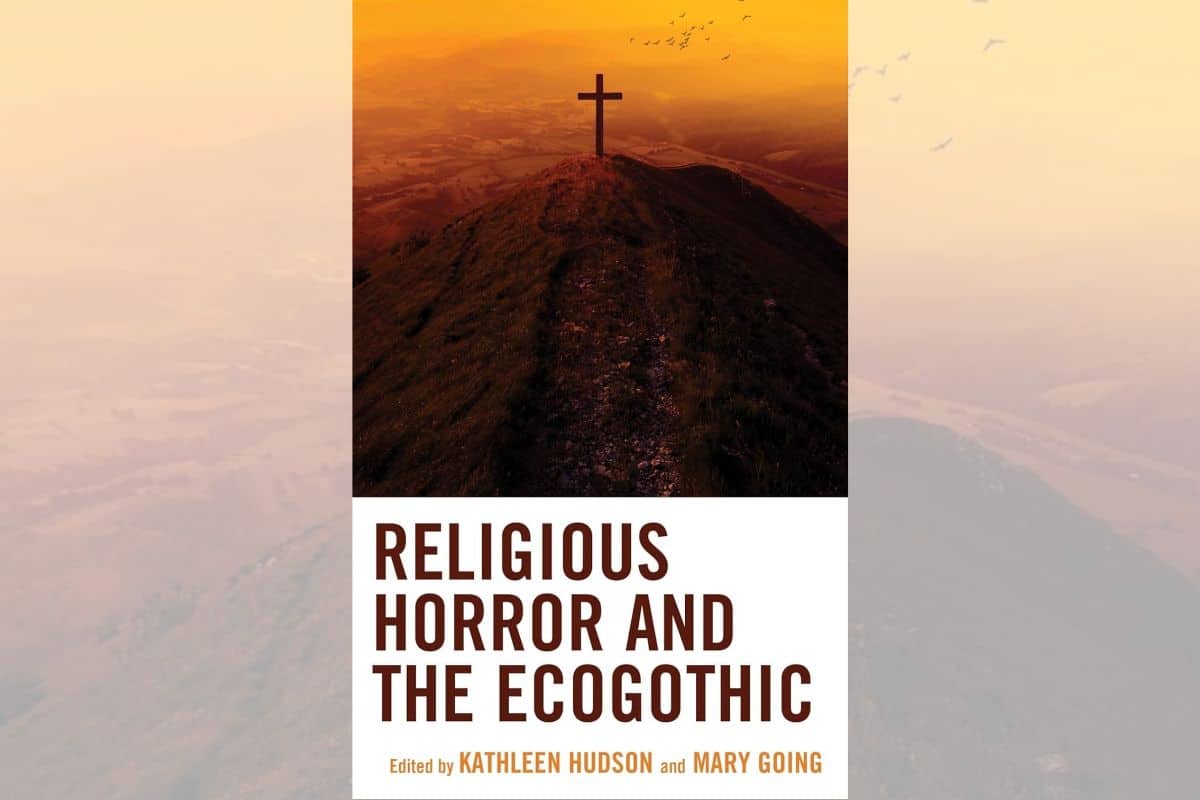Religious Horror and the Ecogothic is a new collection of essays that examine how Christian narratives shape horror and ecological themes, writes DR KAJA FRANCK

Review of Religious Horror and the Ecogothic
Throughout the Bible and Christian narrative are stories that reinforce a complex and sometimes confused relationship with nature.
From the beginning, the Book of Genesis has been read as an invocation to both protect God’s creation, a call for human dominion over God’s ‘lesser’ creations, and an exhortation to make the land fruitful.
How we conceive of wilderness in the Western imagination has been framed by Biblical language. The ‘wilderness’ has been perceived as a chaotic space where God is absent – and where Devil may be found.
The imagery of hell fire calls to mind the worst ravages of climate apocalypse. Jonah’s experience with the whale evokes humanity’s fears of fathomless oceans and ravenous sea creatures. The Garden of Eden gives us a comforting vision of nature but one from which humans have been expelled and to which we must suffer to return.
But if we are fallen, then so to is the nature around us. In the Western world, the language of Christianity suffuses fictional representation of the natural world. This symbolism is found in early nature narratives but also informs more recent texts.
Into this landscape comes the recently published Religious Horror and the Ecogothic (2024), a collection of academic essays, which connects Christian thought to horror, the Gothic, and broader environmental concerns.
The scope of this collection is broadly Anglophone, concentrating particularly on British and American texts, and those that have been disseminated to these audiences. In these turbulent times, as climate change is eroded to a political punchbag, the essays contained within offer a way of thinking about how humanity relates to nature and the frameworks we use to understand our place in it.
Given the historical and ongoing impact of Christian thought on Anglophone culture, the collection is split into four sections to cover the past, present and future: ‘Early Gothic Origins’, ‘Long Nineteenth Century Evolutions’, ‘Twentieth Century Reimaginings’ and ‘Contemporary Ecohorrors’.
The first three chapters analyse the Puritan relationship to whaling, Anne Radcliffe’s Gothic landscapes and biblical repression of women, and cannibalism in Lord Byron’s poetry. In the long nineteenth century, we turn to Moby Dick (1851) and capitalism of the sea, hellish landscapes and horror of the divine in Gerard Manly Hopkins’ and James Thomson’s poetry, before turning to Sheridan Le Fanu’s use of Calvinist determinism and the horror contained in the material world, and ending with an analysis of Christian hope in Algernon Blackwood’s mountainous topographies.
The 20th century opens with an analysis of anthropocentric anxieties in H.P. Lovecraft’s ‘The Call of Cthulhu’ (1926) and William Hope Hodgson’s The Night Land (1912), then moves to look at dominionism in the filmic evolution of H.G. Wells’ The Island of Doctor Moreau (1896), before finally considering Christian and cult sacrifice in classic folk horror films such as Witchfinder General (1986).
Moving toward contemporary fears, M. Night Shyamalan’s The Happening (2008) and Old (2021) is considered through the lens of the ‘Gaia hypothesis’ and the corruption of Edenic landscapes, before the role of apocalyptic disasters, fuelled by capitalism, is analysed in Margaret Atwood’s Maddaddam trilogy.
The final offering is my own reading of the Netflix film Troll (2023) and its depiction of the titular character as wild, untamed nature that stands in opposition to Christianity, building on previous, folkloric depictions.
There should, therefore, be something for everyone whatever your persuasion, religious or otherwise.
If this rundown has whetted your appetite for further bloody consecration, you can hear talks from the editors and selected contributors at the book launch for which you can find details below.
Book launch date: 16 July, 4-6pm BST (11am-1pm EST), online (Zoom) and in-person (University of Sheffield).
RSVP: Kathleen Hudson ([email protected]) or Mary Going ([email protected])
Tell your thoughts on Religious Horror and the Ecogothic in the comments section below!



